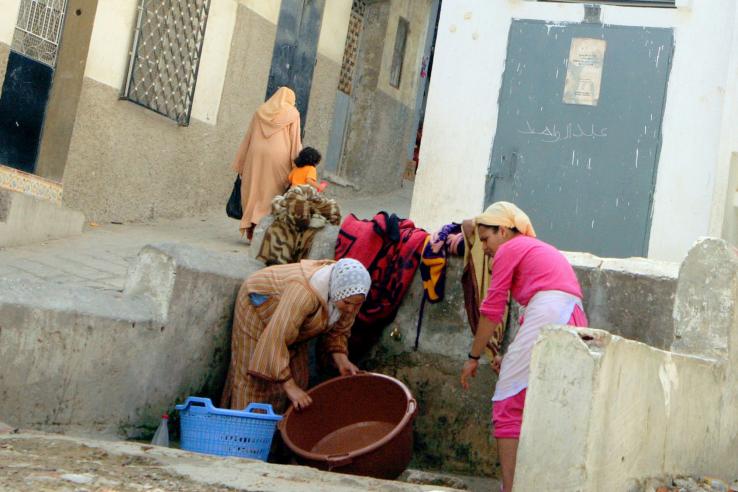Displaying 1081 - 1095 of 1301
Evaluation
Researchers conducted a randomized evaluation to test the impact of a general voter outreach effort on the political participation of immigrants relative to participation of non-immigrants. The canvassing treatment increased voter turnout of immigrants without affecting turnout of non-immigrants.
Evaluation
While many low-income Americans have costly debt, they typically spend only a small proportion of their tax rebates to repay those debts. In partnership with Baltimore CASH, researchers are introducing postcards that encourage low-income tax filers to use their tax rebates to pay off debt, and varying the timing of postcard delivery, to evaluate the impact of these nudges on debt repayment.
Evaluation
Researchers sent letters to polling stations announcing smartphone vote-tally audits to evaluate the impact of audits on electoral irregularities such as non-adherence to transparency regulations and falsified vote tallies. Relative to a comparison group, letters increased the number of polling stations posting vote tallies in accordance with the law, reduced fraudulent vote tallies, and decreased the vote share for the incumbent president.
Evaluation
Researchers offered high school students the opportunity to sign up for free access to an online SAT preparatory course. Some students were told that their decision to sign up would be public, and others were told that their decision would be kept private. In non-honors classes, sign-up rates were lower for students who were told that their decision would be public. In honors classes, sign-up rates were not affected.
Evaluation
International remittances are an important financial tool for many developing countries, and many organizations offer financial products or financial education services to help families manage the remittances they receive. Researchers provided families with financial products and financial education in the Philippines to test whether the two services influenced each other.
Evaluation
Researchers studied the impact of a clinical decision support software system on high-cost imaging orders. They found that clinical decision support reduced the number of high-cost scans targeted by the software but did not change the total number of high-cost scans ordered.
Evaluation
Researchers partnered with a large sugar cane company to see if delaying the premium payment until after the harvest would increase farmers’ demand for insurance. Researchers found that farmers were much more likely to purchase insurance when the payments were delayed until after the harvest.
Evaluation
In Colombia, researchers evaluated the impact of an online sexual health course implemented in public middle schools on adolescents’ sexual health knowledge, behavior, and attitudes towards sexual health. The study showed that the online course led to improved sexual health knowledge and attitudes, and increased the likelihood that students redeemed vouchers for condoms, an important precautionary behavior.
Evaluation
J-PAL affiliate Benjamin Olken (MIT) devised a method to measure corruption and used it to evaluate alternative strategies to reduce corruption on Indonesian roadbuilding projects. The evaluation tested two types of strategies: encouraging community participation and increasing the probability of centrally-administered audits. The results suggest that community participation should not be seen as a panacea for corruption, while also demonstrating that even entrenched corruption can be reduced.
Evaluation
Researchers are conducting a randomized evaluation to test the impact of a nursing skills training program targeting female youth based in Assiut and Sohag, Egypt, on employment outcomes on the treated group and more importantly, their local social network.
Evaluation
Researchers conducted a randomized evaluation to look at the effect of private connections in a setting where most households already had access to high-quality water through public taps. They found that households had a high willingness to pay for piped water, and while home water connection had no impact on waterborne illness, households' self-reported happiness improved substantially.
Evaluation
Researchers are examining the impact of offering health insurance through a microfinance institution on clients’ health behaviors and health outcomes, as well as on the institution’s profit, client retention, and default rates.











